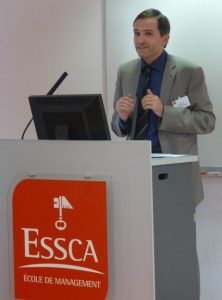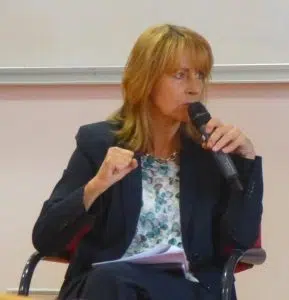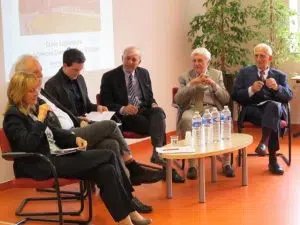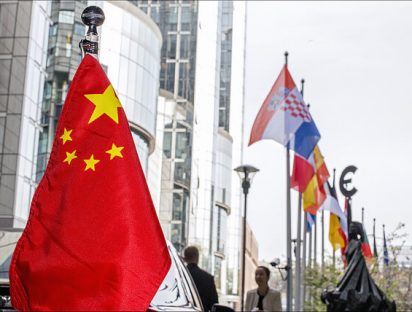On 29 and 30 May, the ESSCA Paris campus in Boulogne-Billancourt hosted the international conference on European Space Policy convened by Thomas Hoerber from the EU-Asia Institute, in collaboration with the European Space Agency (ESA), the University Association for Contemporary European Studies (UACES), and the Embassy of the Federal Republic of Germany.
The rationale underpinning this high-level event was to organise a ‘Re-EUnion’, a meeting of academics and institutional policy-makers from a specific field of activity, with the aim of inspiring critical reflection and allowing for new insight in the study of the European Union. In order to achieve this, the thematic focus of this conference was the Galileo project.
Lessons from the last decades
The first roundtable already set the tone. In his keynote speech, Paul Stephenson (University of Maastricht, currently Sciences Po Paris) pointed out the numerous facets and application of Galileo, calling it a ‘game-changer’ in European Space Policy that had direct implications for defence and security issues, migration, transport, agriculture, and of course the common market.
The policy-makers and practionners who were present at this conference agreed that space policy deserved to be in the academic spotlight and has a role to play in the European Integration Process. Edelgard Bulmahn, vice-president of the German Bundestag and as former minister for higher education and research directly involved in the Galileo negotiations, insisted right very convincingly that space policy has always been ‘a highly political thing’: ‘European Space Policy is more than just another EU policy, but has always been a tool for integration, from its very beginnings!’ For Vittorio Prodi, former MEP and Chairman of the Sky and Space intergroup in the European Parliament, it was ‘a central issue in the construction of Europe’, a very good illustration or case study for the fact that ‘the only way to gain back the sovereignty lost in the globalisation process is to manage it together!’
At the same time, the participants agreed that European space policy will not develop its full potential before European integration has progressed further. According to them it cannot be understood without taking into account the influence of military investment. Gérard Brachet, former director of the French space agency CNES, repeatedly pointed to space technologies dual-use nature. Alfredo Roma, advisor to the Italian Prime Minister during the earlier period of the Galileo programme, went even further and appealed for the establishing of a United States of Europe with a common defence and security policy. Only in that context could a stronger European space policy develop to serve the defence and the foreign policy interests of Europeans.
The future of European space technology
On a more down-to-earth level and in the context of the Galileo Project, experience has shown the Commission to be over-bureaucratic and for the space experts from ESA simply inapt. René Oosterlinck, the former director of Galileo at ESA, clearly stated that no big space programme can currently be handled by the EU. Pieter van Nes, the Advisor to the Director General of the “Joint Research Centre” (the research arm of the Commission), agreed roughly with the analysis that the Commission has no comparable technical expertise to ESA, but advocated that this corresponds in fact to the intended task sharing between the EU and the ESA, with the ESA as the technical agency of a politically accountable EU.
In the discussion, the overall budget allocated to space technologies turned out to be the pivot. As Stefano Bruzzi, who has worked long in ESA and is now in the consultancy SpaceTec, pointed out, Europeans first have to decide what they want to do in and with space. The budget will follow that logic, whatever the institutional setting. According to researcher Emmanuel Sigalas from the Czech Institute of International Relations, the EU seems to be the most likely place in which good coordination, avoidance of duplication and economies of scale can be achieved.
 Beyond the event
Beyond the event
The conference will have an afterlife in both teaching and research. Additional in-depth interviews with the participants and other major actors of space policy in recent decades are expected to set up original teaching material that will be made available to the academic community of European Studies. In terms of publications, the discussions of the event will feed into two forthcoming books: Hoerber and Stephenson, European Space Policy (with Routledge), and Hoerber and Sigalas (2016), Theorizing Space and Dependent Concepts, (with Lexington). These should further stimulate the discussion on space policy in the context of European integration.







